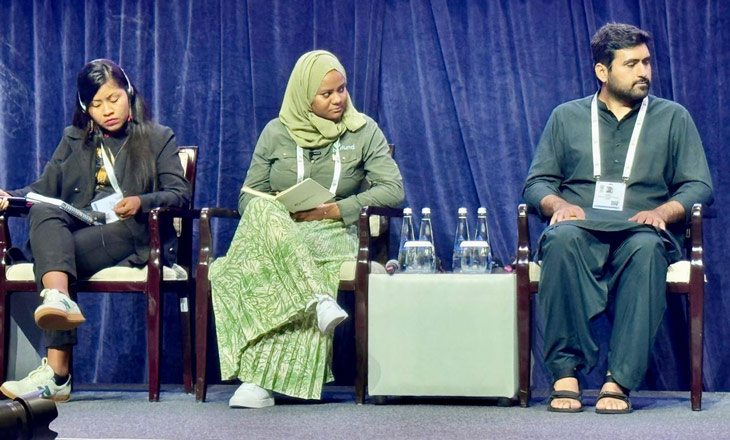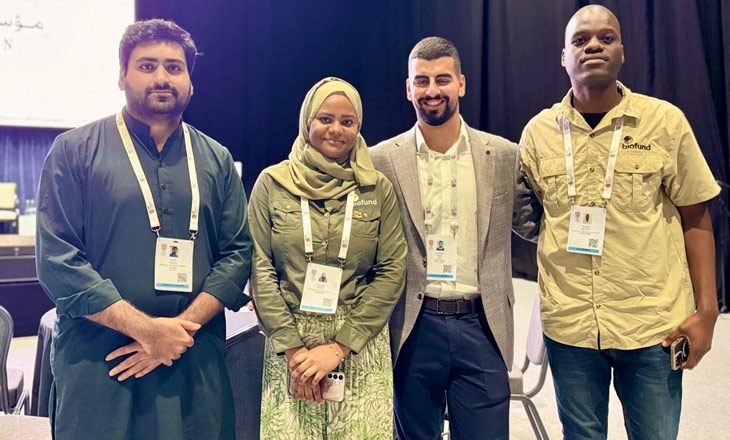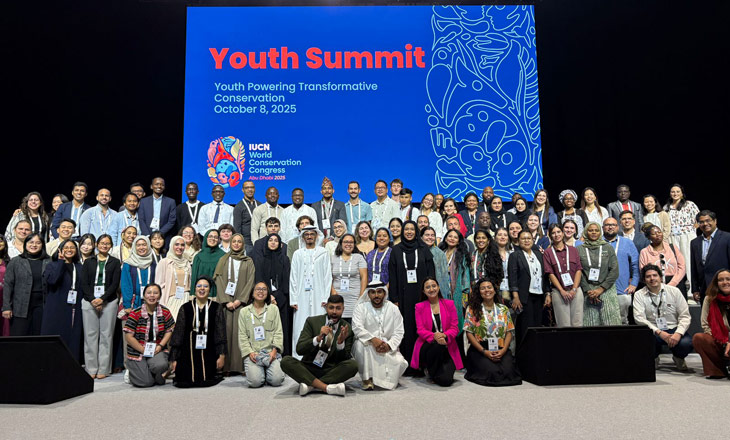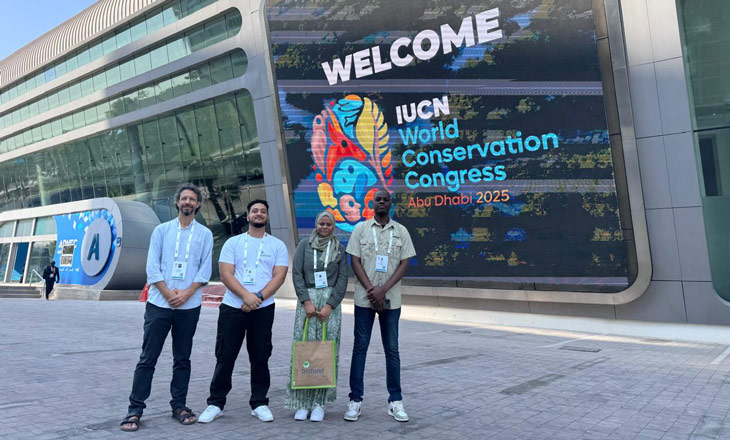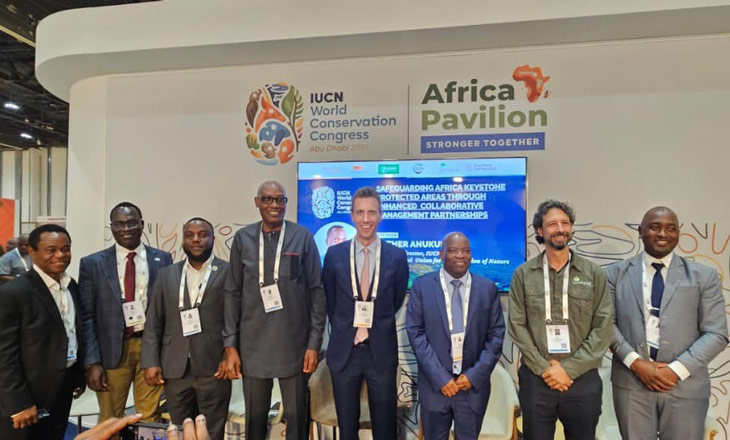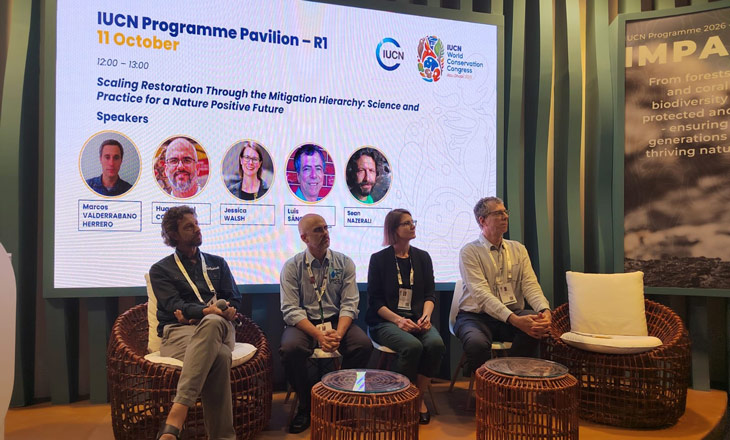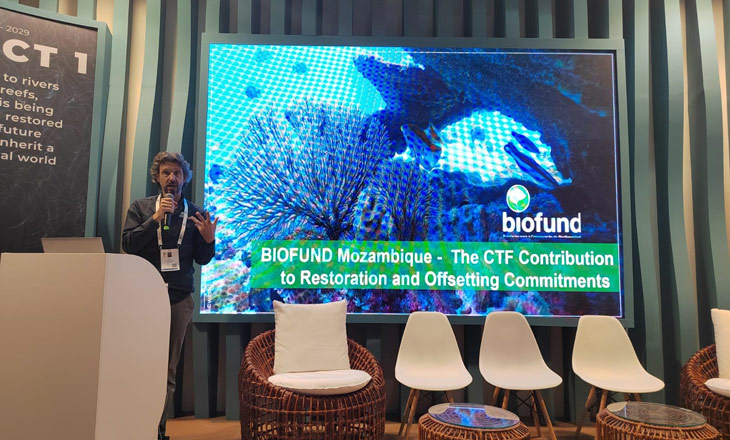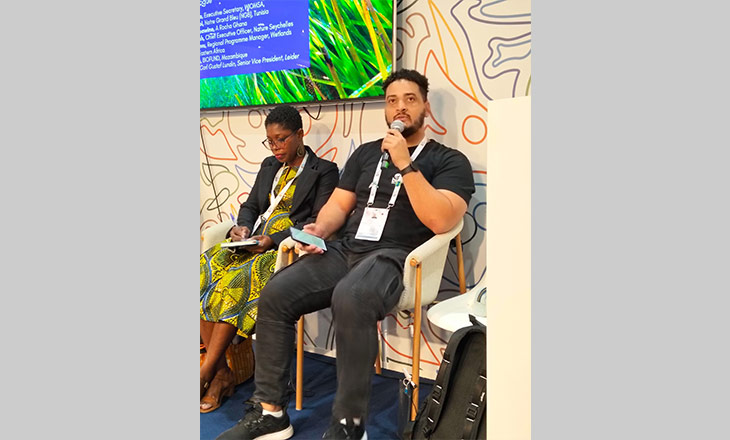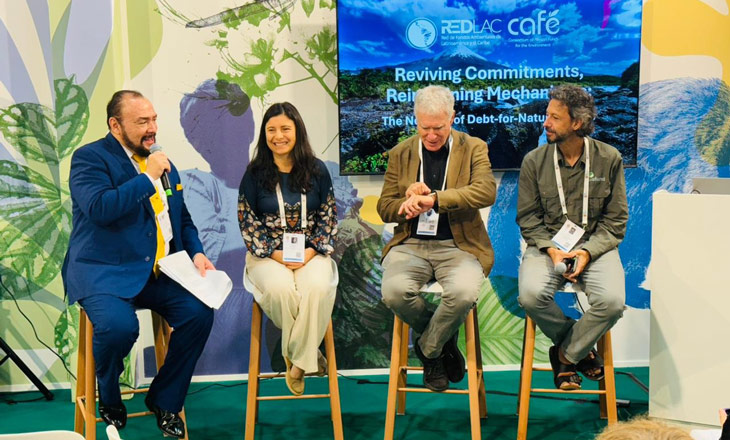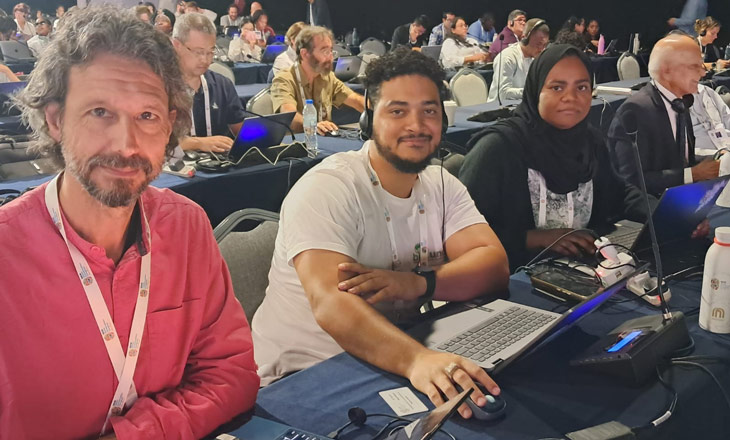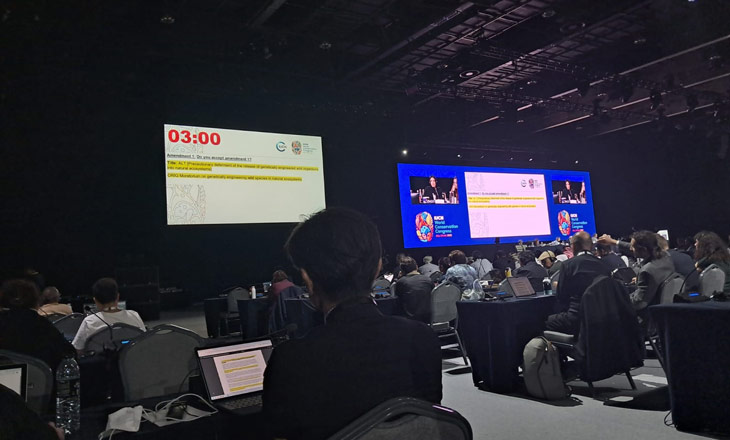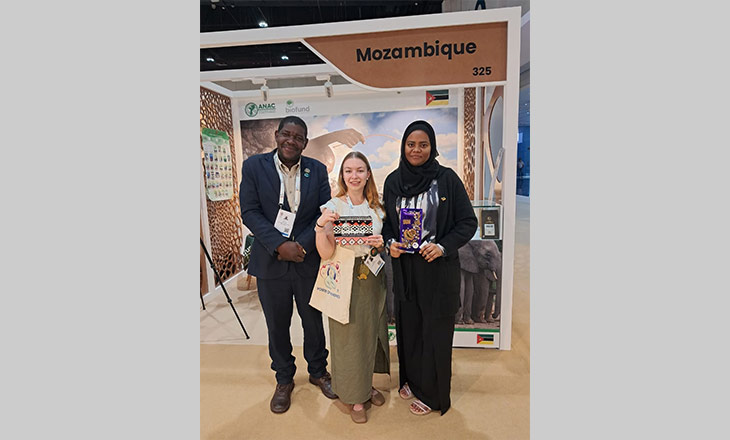The Foundation for the Conservation of Biodiversity (BIOFUND) made a strong appearance at the IUCN World Conservation Congress 2025, held from 9 to 15 October in Abu Dhabi, where it reinforced its institutional commitment to nature conservation and sustainable development in Mozambique.
Published at 17/10/2025
BIOFUND Reinforces Commitment to Mozambique’s Biodiversity Conservation at the IUCN World Conservation Congress 2025
Foundation highlights sustainable financing solutions, local governance, and regional partnerships in Abu Dhabi (9–15 October)
The event, which brought together decision-makers, scientists, representatives of civil society organizations, and leaders of indigenous peoples from more than 140 countries, served as a strategic platform for sharing experiences, innovation, and defining global priorities for biodiversity protection.
BIOFUND presented a technical and interactive exhibition dedicated to Mozambique’s biodiversity, organized in partnership with the National Administration of Conservation Areas (ANAC). The space showcased the country’s natural richness and the complementary role of various stakeholders in promoting the sustainability of Conservation Areas. It featured materials on flagship initiatives such as the Endowment Fund, the bio Card, the MozNorte Project (funded by the World Bank), the Biodiversity Conservation Programme (funded by Sweden), the Biodiversity Offsets Programme (funded by the French Development Agency – AFD and the French Facility for Global Environment – FFEM), and the PROMOVE Biodiversity Project (funded by the European Union), in addition to community financing mechanisms and environmental education programmes supported by BIOFUND.
The exhibition attracted great interest, particularly for its innovative sustainable financing models and public-private partnerships promoted by the Foundation, becoming a reference point for networking and exchange of experiences, and strengthening the international visibility of the institution and Mozambique.
In parallel, BIOFUND participated in seven thematic sessions, sharing experiences and strategic solutions in sustainable financing, community conservation, biodiversity offsets, financial innovation, and the mitigation hierarchy. BIOFUND and its partners highlighted the effectiveness of the COMBO+ programme in reconciling economic development and conservation, with Mozambique standing out as a successful case in biodiversity pilots and technical capacity strengthening.
The presence of young BIOFUND professionals also stood out at the Congress, notably Humaira Badrú, Kevin Correia, and Moisés Mutevuie, all former beneficiaries of the Mozambique Leadership Program for Conservation (PLCM). While Humaira Badrú and Kevin Correia actively participated in the sessions Youth on the Frontlines of Nature Conservation and Blue Nature – From Conservation to Sustainable Financing for Improved Livelihoods, illustrating the impact of BIOFUND’s continued investment in empowering young leaders, Moisés Mutevuie, currently a professional in the Foundation’s finance area, demonstrates how the program also contributes to the development of specialized careers in the conservation sector.
Under the Africa Keystone Partnership, the Foundation stood out as a model of a Conservation Trust Fund (CTF), demonstrating how stable financial mechanisms generate concrete impacts on conservation and community development, reinforcing the importance of institutional governance and cross-border cooperation. In panels on ecological restoration and scaling up financing through CTFs, BIOFUND discussed the application of science to integrate conservation, development, and community benefits, exemplifying instruments such as the Endowment Fund and the bio Card. BIOFUND also emphasized the role of collaborative regional platforms, such as the Sustainable Finance Coalition, in mobilizing environmental capital and replicating best practices, as well as emerging instruments such as blue bonds, blended finance, and nature credits. Finally, it reinforced the relevance of local governance structures for credibility and impact, noting that the future of conservation will depend on the mobilization of hybrid instruments and the strengthening of international partnerships.
BIOFUND’s participation also extended to the IUCN Members’ Assembly—the Union’s highest decision-making body—further reinforcing the Foundation’s international recognition as an active member and its alignment with global conservation values and principles. The Foundation promoted collaboration among governments, non-governmental organizations, the private sector, academia, research institutions, civil society, indigenous peoples, and trust funds, consolidating the importance of collective action to achieve international targets such as the Global Biodiversity Framework and the Paris Agreement.

